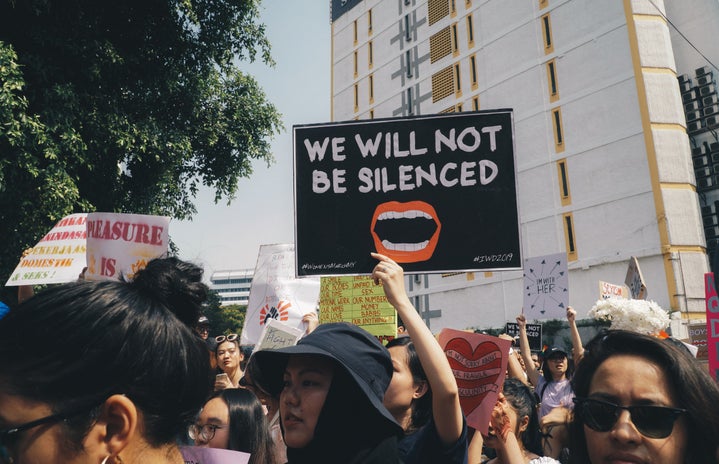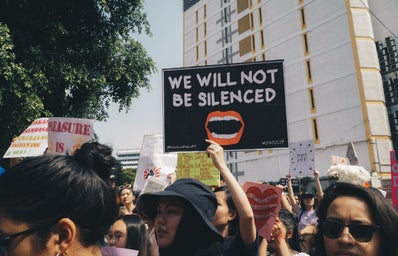Transgender people in the United States have been denied many of their basic, constitutionally-entitled human rights for decades. Under the current Trump administration, the trans rights movement has experienced a series of setbacks, such as diminished protections for trans students, intensified institutional abuse towards trans prisoners, and the trans military ban. The trans community has also been a target for violence, especially Black trans women, who are murdered at an alarmingly high rate. Despite these devastating losses, the trans rights movement has remained resilient in spirit, making immense progress that continually deserves recognition. In celebration of trans activism, here are nine events that propelled the trans rights movement forward.
- 1952: Christine Jorgensen has the first public sex reassignment surgery
-
Christine Jorgensen, a World War II veteran, went to Denmark to undergo sex reassignment surgery, completing her gender transition from male to female. She was the first American to go public about her procedure, and subsequently became a cultural icon in Hollywood throughout the sixties and seventies.
- 1969: The police raid the Stonewall Inn in New York City
-
The Stonewall Inn was a Greenwich Village bar frequented by members of the LGBTQ+ community. At the time, same-sex encounters were prohibited by law, so police raids on gay bars were commonplace. Following the raid at Stonewall, many days of rioting ensued. Leading the riots were Black trans icons, such as Marsha P. Johnson and Sylvia Rivera, who famously threw bricks at the police and jumpstarted the movement for gay rights. In response to the Stonewall riots, Johnson and Rivera established the Street Transvestite Action Revolutionaries (STAR), an association that built a common shelter and social space for young transgender people. Johnson and Rivera also helped foster a more tight-knit Black LGBTQ+ community, which pushed for intersectionality in the gay rights movement.
- 1977: Renée Richards becomes the first transgender woman to play in the U.S. Open
-
The New York State Supreme Court ruled in favor of Renée Richards, who was initially banned from playing in the U.S. open because of her inability to pass the Barr body test, a lab exam that detects Barr bodies in cell nuclei to determine someone’s sex (a presence of Barr bodies is indicative of female sex, with the exception of individuals who have certain chromosomal abnormalities). This case was a landmark decision for transgender people in sports, recognizing that trans women are women, regardless of the sex they were assigned at birth.
- 1992: Phyllis Randolph Frye, the first openly transgender U.S. judge, establishes the International Conference on Transgender Law and Employment Policy
-
Frye created a forum to discuss the discrimination of transgender people in the areas of healthcare, marriage, housing, and employment, among others. This conference was one of the first formalized public advocacy channels for transgender people in America.
- 2004: San Francisco hosts the first Trans March
-
On June 25, 2004, several trans activists organized the first Trans March in San Francisco. This event enhanced the public visibility of trans people in the greater LGBTQ+ community.
- May 2014: Medicare extends coverage for sex reassignment surgery
-
The Department of Health and Human Services reversed a Medicare exclusion from 1981 that denied coverage to transgender individuals seeking sex reassignment surgery. HHS finally officially acknowledged the medical needs of the transgender community.
- June 2014: Laverne Cox appears on the cover of Time Magazine & is nominated for an Emmy
-
Laverne Cox garnered critical acclaim for her role as Sophia Burset, a transgender prisoner, in Netflix’s Orange is the New Black. She was the first transgender person to land the cover of Time Magazine and to be nominated for an Emmy, setting new standards for equality in the entertainment industry. Cox remains an outspoken advocate for Black trans women like herself.
- January 2015: Transgender people are recognized in the State of the Union
-
Former President Barack Obama acknowledged the transgender community in his State of the Union address to Congress. It was the first time a sitting president mentioned transgender people in a speech of this prestige, and increased trans visibility.
- June 2020: The Supreme Court rules that Title VII prohibits employment discrimination for LGBTQ+ individuals
-
In R.G. & G.R. Harris Funeral Homes v. EEOC & Aimee Stephens, the Supreme Court directly addressed the discrimination of transgender people for the first time. Aimee Stephens was fired by her employer in 2013 when she came out as a woman after presenting as a man, her birth-assigned sex. Justice Neil Gorsuch wrote the majority opinion for this 6-3 ruling, arguing that Title VII’s provision prohibiting discrimination on the basis of sex in the workplace applies to LGBTQ+ individuals as well. He concluded that Stephens’s removal was unlawful. This landmark decision sets a clearer legal path towards achieving equality for transgender people.
These events serve as an inspiring reminder of the excellent trans activism that has propelled their movement, and will continue to in the coming years. However, the trans community has suffered immense trauma in recent years in light of increased federal discriminatory policies and hate crimes towards trans people. Allies are needed now more than ever to support the trans community in their struggle for justice and equality. There is no perfect way to be an ally, and sometimes true allyship has to begin with educating yourself on trans issues before you can take on the world.


